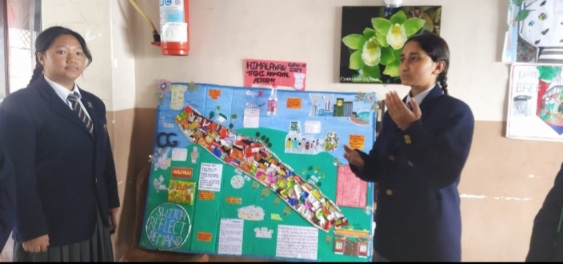SHIMLA/GANGTOK – PepsiCo India, CG Foods, Parle, Coca-Cola India, and ITC are at the top of the shame list as the biggest plastic polluters of the Indian Himalayas in 2024.
The shocking findings come from the latest Himalayan Cleanup, spearheaded by Zero Waste Himalaya and the Integrated Mountain Initiative (IMI).
The findings were announced by the Zero Waste Himalaya platform and Integrated Mountain Initiative
during a webinar on Zero Waste Himalaya Day on August 8, 2024 followed by a workshop organised on August 12, 2024 in Gangtok, Sikkim.
Sharing the report, IMI President Ramesh Negi, former Chief Secretary of Arunachal Pradesh, said it paints a grim picture of our mountains being buried literally under corporate trash. They must be made accountable under the extended producer responsibility.
Over 15,000 volunteers rolled up their sleeves this year, scouring more than 350 sites across the mountain states.
The audit wasn’t just about picking up litter—it was about naming and shaming the companies responsible.
The numbers speak for themselves: a staggering 121,739 pieces of waste were collected, and a whopping 87.7% of it was plastic.
Ms. Priya Shrestha from Zero Waste Himalaya revealed that volunteers picked up 121,739 pieces of waste during THC 2024.
Shockingly, only 24.8% of that plastic is recyclable—the rest is just junk. "The mountains are drowning in plastic, with no viable solutions for handling these multilayered messes".
The rest? Useless junk that will choke our mountains for generations.
Food wrappers topped the list at a shocking 84.2% of all plastic waste, a clear sign of the junk food invasion in these fragile regions.
Energy drink bottles, especially Sting, were found in alarmingly high numbers (22 per cent), with the youth guzzling down these sugar-packed beverages despite the labels saying they aren’t for kids.
This toxic mix of junk food and plastic waste is a growing threat to mountain communities, driving non-communicable diseases, said Negi.
But the rot doesn’t stop with the top five polluters.
Big names like Hindustan Unilever, Dabur India, Nestle, Haldiram's, and Britannia also made it to the top 20 offenders, adding to the mountains of multilayered plastics that are impossible to recycle.
During a workshop in Gangtok on August 12, 2024, Deputy Mayor Tshering Palden and other officials from Sikkim and Darjeeling made it clear: current waste policies are failing the mountains.
IMI’s Secretary, Roshan Rai, didn’t mince words either, slamming the “broom, bin, landfill” approach and calling for real systemic changes.
The mountains, he warned, are too fragile for half-hearted solutions.
The cleanup campaign isn’t just about cleaning up.
It’s about pushing back against corporate giants who think they can dump their waste and walk away.
Zero Waste Himalaya and the Integrated Mountain Initiative have been leading The Himalayan Cleanup (THC) since 2018, auditing waste and naming the companies polluting the Himalayas.
They demand these companies take responsibility for their plastic waste under the government's extended producer responsibility rule.
The call is loud and clear—these companies must take responsibility for the mess they’re creating. The time for token efforts is over.
The mountains deserve better, and it’s time these polluters paid up.








